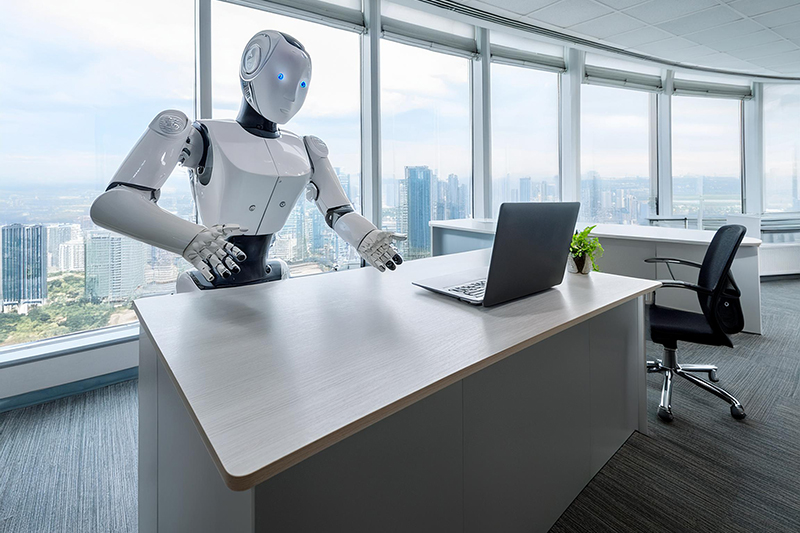As technology advances at an unprecedented pace, the implementation of Artificial Intelligence (AI) within business software like Enterprise Resource Planning (ERP) systems is undeniably transforming how organizations operate. This article explores the various ways AI-integrated ERP systems streamline business processes, facilitate smarter decision-making, and nurture greater efficiency within companies of all sizes. We will also focus on the significance of business software in today’s competitive market, illustrating how AI-driven ERP systems are crucial for businesses in places like Hong Kong, where rapid innovation is a hallmark of economic growth.
The Evolution of Business Software
Business software has undergone a remarkable transformation over the past few decades. Initially, ERP systems were monolithic, complex, and often out of reach for small to medium-sized enterprises (SMEs) due to high costs and the intricacies involved in their implementation. However, advancements in cloud computing, mobile technology, and particularly AI, have democratized access to these powerful tools. Business software today is not just about managing resources; it’s about providing actionable insights, automating repetitive tasks, and allowing businesses to focus on core activities that drive growth.
AI-Driven Analytics and Business Intelligence
One of the most significant benefits of integrating AI with ERP systems is the enhanced capability for data analysis and business intelligence. Traditional business software relies heavily on manual input and basic algorithms to process information. In contrast, AI can sift through vast amounts of data at lightning speed, identifying patterns and predicting trends that would be nearly impossible for human analysts to detect.
For businesses in Hong Kong, which operates in a fast-paced, highly competitive environment, having access to real-time data and predictive analytics is invaluable. AI-infused ERP systems can analyze market trends, customer behavior, and even operational inefficiencies, providing businesses with the information they need to make proactive decisions.
Enhancing Customer Experience
In the modern marketplace, customer experience is paramount. AI-integrated ERP systems play a crucial role in enhancing customer satisfaction by providing personalized experiences and prompt responses. Business software equipped with AI can analyze customer purchase history, preferences, and feedback to tailor marketing strategies and improve services.
Hong Kong’s market is characterized by a high degree of consumer sophistication, where customers expect quick, personalized, and efficient service. AI-driven ERP systems can help businesses meet these expectations by enabling automated customer support through chatbots and mechanical intelligence, ensuring that responses are timely and relevant.
Automating Routine Tasks
One of the most tedious aspects of managing a business involves routine tasks that, while necessary, consume valuable time and resources. AI within business software can alleviate this burden by automating processes such as invoicing, payroll management, inventory tracking, and compliance reporting. This automation not only improves efficiency but also reduces the likelihood of human error.
For businesses in Hong Kong, where labor costs are relatively high, automating routine tasks through AI can result in substantial cost savings. It allows employees to focus on more strategic activities, such as innovation and customer engagement, thereby enhancing overall productivity.
Improved Risk Management
AI-powered ERP systems enhance risk management by predicting potential disruptions and suggesting preventative measures. Business software can analyze historical data and external market conditions to forecast risks related to supply chain interruptions, financial shortages, or compliance issues. This predictive capability empowers businesses to take proactive steps to mitigate risks, ensuring smoother operations.
In a dynamic and sometimes volatile market environment like Hong Kong’s, where businesses must continually adapt to changing regulations and economic conditions, the ability to anticipate and manage risks is a significant advantage.
Scalability and Flexibility
Modern business software must be scalable and flexible to accommodate the changing needs of growing businesses. AI-driven ERP systems provide this flexibility by offering modular solutions that can be tailored to specific business requirements. Whether it’s expanding into new markets, diversifying product lines, or adjusting to regulatory changes, AI-integrated ERP systems can seamlessly adapt without requiring a complete system overhaul.
For businesses in Hong Kong, where scalability and adaptability are crucial for sustaining growth in a rapidly evolving market, AI-enabled ERP systems offer the perfect solution. They ensure that as businesses grow, their systems can handle increased complexity without sacrificing functionality or performance.
Collaborative Decision-Making
AI not only enhances individual decision-making within business software but also fosters a collaborative environment. AI-driven ERP systems provide a unified platform where stakeholders can access real-time data, share insights, and make informed decisions collectively. This collaborative approach is particularly valuable for businesses with multiple departments or locations, facilitating seamless communication and coordination.
In the context of Hong Kong’s diverse and dynamic business landscape, where collaboration across different sectors and regions is often necessary, AI-enabled ERP systems offer a strategic advantage. They support effective teamwork by ensuring that every team member has access to the information they need, when they need it.
What is Multiable M18 AI ERP System?
Multiable M18 AI ERP system is a state-of-the-art business software solution designed to meet the complex needs of modern enterprises. Originating in Hong Kong, Multiable M18 integrates advanced AI algorithms with traditional ERP functionalities to provide a comprehensive, intelligent platform for managing business operations. Its features include predictive analytics, automated workflows, and real-time data processing, making it an invaluable tool for businesses aiming to enhance efficiency and drive innovation.
In summary, the integration of AI within ERP systems represents a significant leap forward in the realm of business software. It offers unparalleled benefits in terms of data analysis, customer experience, automation, risk management, scalability, and collaborative decision-making. For businesses in Hong Kong, adopting AI-driven ERP systems like Multiable M18 can lead to sustained growth and a competitive edge in the market.
Contact us


